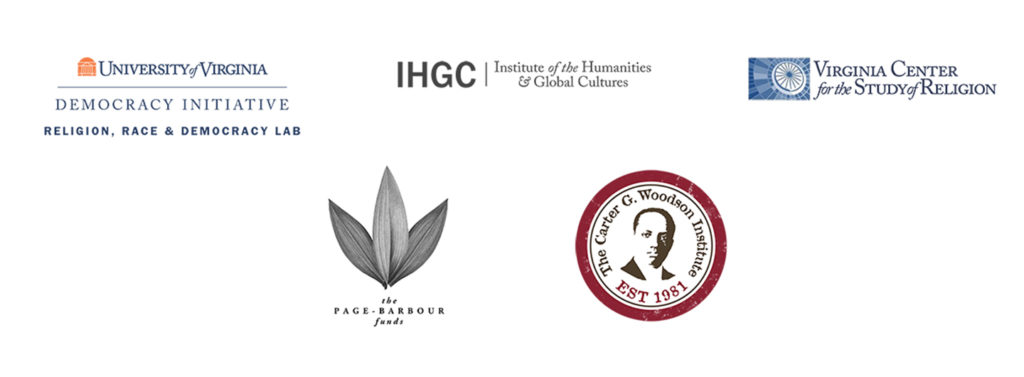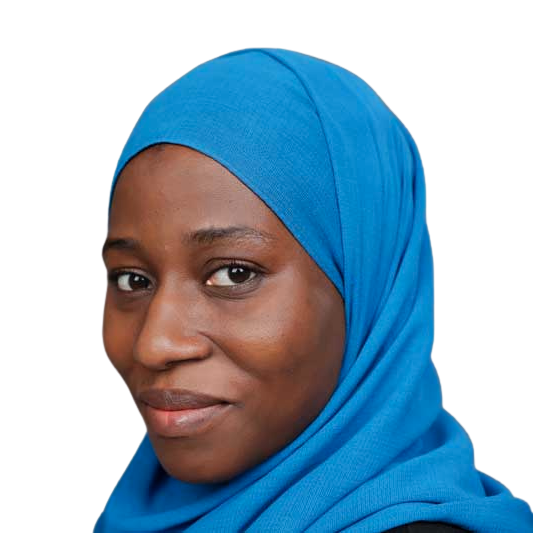The applicability, utility, and definitions of the modern, European categories of “religion” and “democracy” on the African continent have been hotly contested and debated for centuries. In this session, panelists will trace the historical formations of these categories and their relationship to each other across different domains in various African societies and polities, providing foundational context for the rest of the conversations in the conference, Religion and Democracy on the African Continent: Colonial Legacies and Postcolonial Possibilities.
Format
Each panelist will deliver a 10-minute presentation, followed by a 5-minute Q&A. There will be a 10-minute break halfway through the session. Click titles below to read the provided abstracts.
Rabiat Akande, “The Construction of Minorities: Self-Determination and the Legal Politics of Religious Difference in Late Northern Nigeria”
Abdulbasit Kassim, “The Caliphate as Nostalgia: al-Imamāh, al-Khilāfa and Muslim Political Theory of Rebellion in Central Sudanic Africa”
Ebenezer Obadare, “’Man of Letters’ to ‘Man of God’: The Social Origins of Clerical Authority in Nigeria”
Zekeria Ahmed Salem, “Islam and the Postcolonial State in Africa: The Formation of the Islamic Republic of Mauritania”
Alexander Thurston, “The Politics of Writing Sokoto’s History in Independence-Era Nigeria”
Chair: Robert Trent Vinson
Speakers
Rabiat Akande
Rabiat Akande works in the fields of legal history, law and religion, constitutional and comparative constitutional law, Islamic law, International law, and (post)colonial African law and society at the Osgoode Hall Law School of York University in Toronto, Ontario, where she is Assistant Professor of law. Her current research explores struggles over religion-state relations in comparative contexts and illuminates law’s centrality to one of modernity’s most contested issues–the relationship between religion, and the state, and society–while also interrogating law’s complex relationship with power, political theology, identity, and socio-political change. These issues are at the forefront of her book project, Constitutional Entanglements: Empire, Law and Religion in Colonial Northern Nigeria (under contract with Cambridge University Press), which traces the emergence of “secularism” as a constitutional idea of ordering religion-state relations in early to mid-twentieth century British Colonial Northern Nigeria, and grapples with the postcolonial legacy of that inheritance.
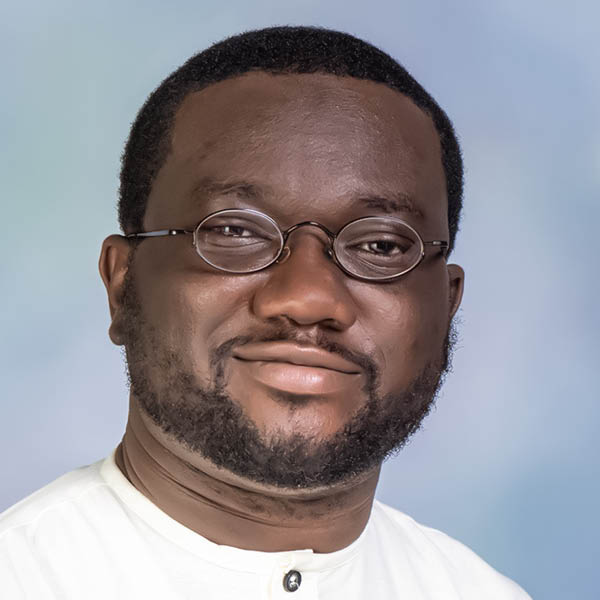
Abdulbasit Kassim
Abdulbasit Kassim is a Ph.D. candidate at the Department of Religion at Rice University and a Visiting Doctoral Fellow at the Institute of Islamic Thought in Africa at Northwestern University. He received his M.A. in Politics and International Relations from Keele University and his B.Sc. in International Studies from Ahmadu Bello University, Zaria. His primary field of research is Islam and Africana Studies, with particular interests in African intellectual and religious history, history of classical and modern Islamic thought, slavery and race in Africa and the African diaspora, African and African diaspora religions, Arabic-Ajami codicology and textual anthropology, Africology and postcolonial studies, gender and sexuality in African Muslim societies, and religion in international relations. Abdulbasit’s first book, The Boko Haram Reader: From Nigerian Preachers to the Islamic State (published by Hurst, Oxford University Press and Ouida Books in 2018), co-edited with Michael Nwankpa, offers an unprecedented collection of primary source texts, audiovisual, and nashīds (martial hymns), translated into English from Hausa, Arabic, and Kanuri, tracing the history and evolution of the Boko Haram movement. His second book Boko Haram: The Past of the Present Upheaval is under advanced contract.
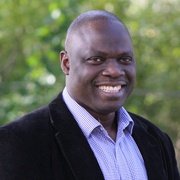
Ebenezer Obadare
Ebenezer Obadare is Douglas Dillon Senior Fellow for Africa Studies at the Council on Foreign Relations (CFR). Before joining CFR, he was professor of sociology at the University of Kansas, Lawrence. He is also a senior fellow at the New York University School of Professional Studies Center for Global Affairs, as well as a fellow at the University of South Africa’s Institute of Theology. Obadare was Ralf Dahrendorf Scholar and Ford Foundation International Scholar at the London School of Economics and Political Science where he completed his PhD in social policy in 2005. He holds a BA in history and an MSc in international relations from the Obafemi Awolowo University, Ile-Ife, Nigeria.
He is author/editor of numerous books, including Christianity, Sexuality and Citizenship in Africa (Routledge, 2019), Pentecostal Republic: Religion and the Struggle for State Power in Nigeria (Zed, 2018), Humor, Silence, and Civil Society in Nigeria (Rochester, 2016), Governance and the Crisis of Rule in Contemporary Africa: Leadership in Transformation (Palgrave Macmillan 2016), The Handbook of Civil Society in Africa (Springer, 2014), and Civic Agency in Africa: Arts of Resistance in the 21st Century (James Currey, 2014). His forthcoming book, from the University of Notre Dame Press, is titled Pastoral Power, Clerical State: Pentecostalism, Gender, and Sexuality in Nigeria. He is the editor of Journal of Modern African Studies and contributing editor of Current History.
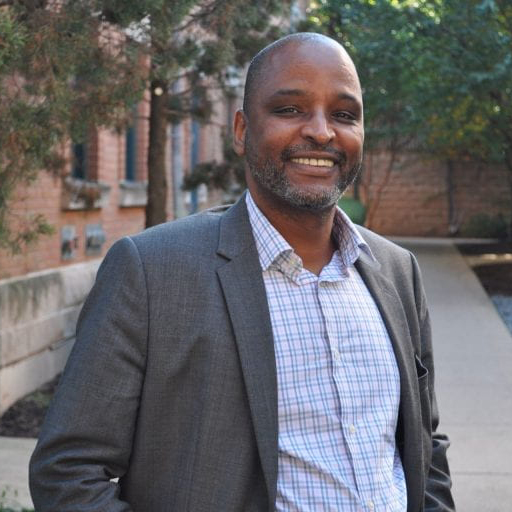
Zekeria Ahmed Salem
Zekeria Ahmed Salem is Associate Professor of Political Science at Northwestern University and Director of the Institute for the Study of Islamic Thought in Africa. Salem studies religion and politics with a special focus on Islam and Muslim politics in Africa in comparative perspective. Empirically focused on Mauritania, a country straddling the Arab world and Sub-Saharan Africa, Salem’s research explores in particular the interplay between inequality, Islamic knowledge and power. A first monograph explores this theme through an examination of two parallel post-colonial developments: the push against the traditional forms of inequality such as slavery and social hierarchies on the one hand and the Islamization of the Mauritanian public and political life on the other. An ongoing research project investigates how Bilad Shinqīṭ (today Islamic Republic of Mauritania) has become in a little over a century a label of excellence in Islamic knowledge and normative authority with an astonishing global reach. Salem’s other research interests and publications explore themes such as: race and politics in Muslim societies; the politics of “deradicalization” and Countering-Violent Terrorism (CVE); social movements and everyday negotiations over citizenship; biometrics and politics.

Alexander Thurston
Alexander Thurston is Assistant Professor of Political Science at the University of Cincinati, where he works on Islam and politics in northwest Africa, with a focus on the twentieth and twenty-first centuries. He has conducted field research in Nigeria, Senegal, Mali, Mauritania, and Burkina Faso, and he has authored several books, including Salafism in Nigeria: Islam, Preaching and Politics (Cambridge University Press, 2016), Boko Haram: The History of an African Jihadist Movement (Princeton University Press, 2018), and Jihadists of North Africa and the Sahel: Local Politics and Rebel Groups (Cambridge University Press, 2020).
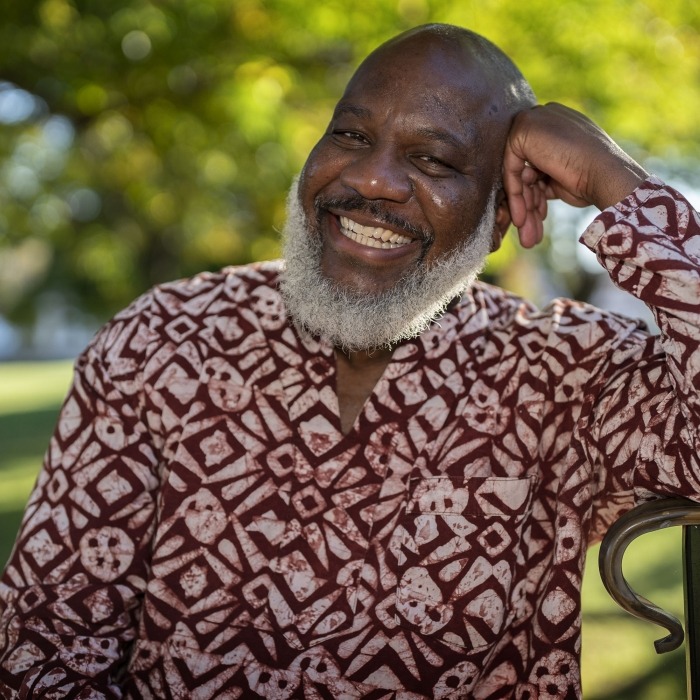
Robert Trent Vinson
Robert Trent Vinson is Director & Chair of the Carter G. Woodson Institute for African American & African Studies at the University of Virginia and a Research Associate at Stellenbosch University in South Africa. He is a scholar and teacher of 19th and 20th century African & African Diaspora history, specializing in the transnational connections between southern Africa, the Americas and the Caribbean. His first book was The Americans Are Coming!: Dreams of ’American Negro Liberation’ in Segregationist South Africa (2012) and his second book was Albert Luthuli: Mandela before Mandela (2018).
Vinson currently serves as President of the Association for the Study of the Worldwide African Diaspora (ASWAD), the world’s premier professional organization of African and African Diaspora scholars. He also serves on the Board of Directors of the African Studies Association and on the editorial board of Michigan State University Press and of Safundi: The Journal of South African and American Studies.
Vinson earned his Ph.D. in African History from Howard University. Prior to his appointment at UVA, Vinson taught at Washington University in St. Louis and more recently, William & Mary, where he was Frances L. and Edwin L. Cummings Professor of History & Africana Studies. At William & Mary, Vinson was also the first Chair of the Lemon Project, which documents, preserves and disseminates scholarship that uncovered the College’s long histories of slavery and Jim Crow segregation.
Co-sponsored by
